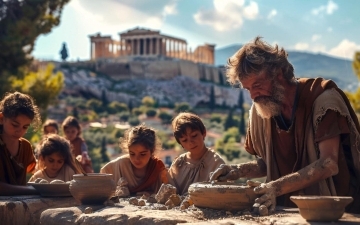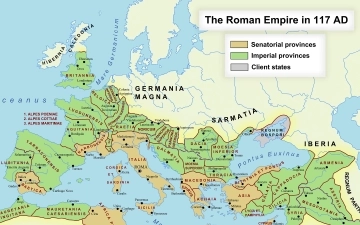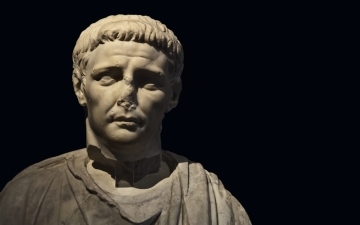Terms & Conditions
Welcome to RomanEmperors.com. Please carefully read the following Terms and Conditions before using our website. By accessing or using our site, you agree to comply with and be bound by these terms. If you do not agree with any part of these terms, please refrain from using our services.
1. Content Disclaimer: RomanEmperors.com provides historical information for educational and informational purposes only. While we strive for accuracy, we cannot guarantee the completeness or accuracy of the content. Users should verify historical information independently for academic or research purposes.
2. Copyright and Usage: All content on this website, including text, images, and multimedia, is protected by copyright laws. Users may not reproduce, distribute, or use any content without written permission from RomanEmperors.com.
3. User Conduct: Users must use the website in a responsible and lawful manner. Any misuse, including but not limited to hacking, spreading malware, or engaging in abusive behavior, is strictly prohibited.
4. Privacy Policy: Please review our Privacy Policy to understand how we collect, use, and protect your personal information when using our website.
5. Third-Party Links: RomanEmperors.com may contain links to third-party websites. We do not endorse or take responsibility for the content, privacy practices, or accuracy of information on these external sites.
6. Modifications to Terms: RomanEmperors.com reserves the right to modify or update these Terms and Conditions at any time without prior notice. Continued use of our website following changes constitutes acceptance of the modified terms.
7. Disclaimer of Liability: RomanEmperors.com is not liable for any direct or indirect damages resulting from the use of our website. Users access the site at their own risk.
8. Governing Law: These Terms and Conditions are governed by and construed in accordance with the laws of the US, and any disputes will be subject to the exclusive jurisdiction of the courts in the US.
By using RomanEmperors.com, you agree to abide by these Terms and Conditions. If you have any questions or concerns, please contact us at info@bible-history.com. Thank you for visiting our website and for your understanding of these terms.
Related Posts
Roman Festivals and Public Holidays
In ancient Rome, festivals and holidays were important days for the people to come together and perform religious rituals. Since the Roman calendar didn’t have weekends, these feriae (holidays) would provide days of rest from people’s regular routine. There were three kinds of Roman holidays: Conceptivae: These annual holidays had...
Read MoreFrom Scrolls to Stones: How Museums Document Biblical History
The Bible is more than just a collection of sacred texts—it’s a living document that has shaped centuries of religious, cultural, and historical movements. For thousands of years, it has been passed down through oral traditions, written manuscripts, and monumental inscriptions. The story of how these texts came to be,...
Read MoreThe Evolution of Customer Expectations In A Digital-First World
Introduction: When Everything Changed for Travelers Think back to your last vacation ten years ago. Going off-grid was actually part of the appeal, wasn't it? Fast forward to today, and that mindset seems downright prehistoric. Modern travelers want their phones working before the plane wheels touch down, and they're definitely not...
Read MoreThe Colossal Footprint: Exploring the Roman Empire at its Greatest Extent
The Roman Empire, a name that evokes images of gladiatorial combat, sprawling aqueducts, and stoic emperors, wasn't just a powerful state; it was a colossal empire that stretched across continents. But how vast was its reach at its zenith? This post delves into the greatest extent of the Roman Empire,...
Read MoreYear of the Four Emperors: A Visual Timeline
📅 68 AD April: Galba, governor of Hispania Tarraconensis, and Vindex, governor of Gallia Lugdunensis, rebel against Emperor Nero.May: The Rhine legions defeat and kill Vindex in Gaul.June 8: The Senate declares Nero a public enemy.June 9: Nero commits suicide; Galba is recognized as emperor.November: Vitellius is appointed governor of Germania...
Read MoreClaudius: The Unexpected Emperor and His Surprising Achievements
In the annals of Roman history, the name Claudius stands out as a remarkable story of an unexpected emperor who defied the odds and left behind a legacy of significant achievements. Often underestimated due to physical disabilities, Claudius rose to power and proved to be a capable and innovative ruler....
Read More






















